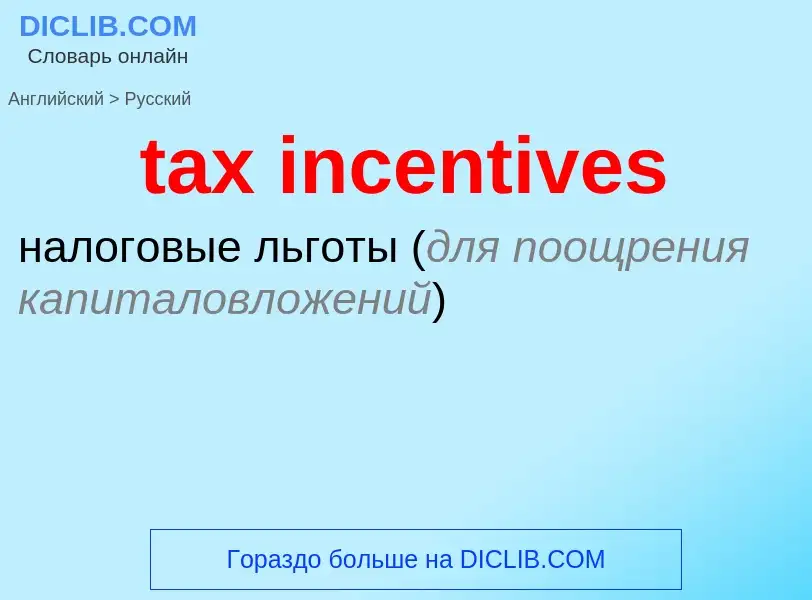Перевод и анализ слов искусственным интеллектом ChatGPT
На этой странице Вы можете получить подробный анализ слова или словосочетания, произведенный с помощью лучшей на сегодняшний день технологии искусственного интеллекта:
- как употребляется слово
- частота употребления
- используется оно чаще в устной или письменной речи
- варианты перевода слова
- примеры употребления (несколько фраз с переводом)
- этимология
tax incentives - перевод на русский
Википедия
A tax incentive is an aspect of a government's taxation policy designed to incentivize or encourage a particular economic activity by reducing tax payments.
Tax incentives can have both positive and negative impacts on an economy. Among the positive benefits, if implemented and designed properly, tax incentives can attract investment to a country. Other benefits of tax incentives include increased employment, higher number of capital transfers, research and technology development, and also improvement to less developed areas. Though it is difficult to estimate the effects of tax incentives, they can, if done properly, raise the overall economic welfare through increasing economic growth and government tax revenue (after the expiration of the tax holiday/incentive period). However, tax incentive can cause negative effects on a government's financial condition, among other negative effects, if they are not properly designed and implemented.
There are four typical costs to tax incentives:
- resource allocation costs
- compliance costs
- revenue costs
- corruption costs.
Resource allocation refers to lost government tax revenue resulting from the tax incentive. The second cost refers to the situation when the tax incentives lead to too much investment in a certain area of the economy and too little investment in other areas of the economy. Revenue cost is associated with enforcing the tax incentive and monitoring who is receiving the incentive and ensuring they are properly deserving of the incentive. Therefore, the higher and the more complex the tax incentive, the higher the compliance costs because of the larger number of people and firms attempting to secure the tax incentive. The final cost is similar to the third in that it relates to people abusing the tax incentive. Corruption occurs when there are no clear guidelines or minimal guidelines for qualification.
According to a 2020 study of tax incentives in the United States, "states spent between 5 USD and 216 USD per capita on incentives for firms." There is some evidence that this leads to direct employment gains but there is not strong evidence that the incentives increase economic growth. Tax incentives that target individual companies are generally seen as inefficient, economically costly, and distortionary, as well as having regressive economic effects.

